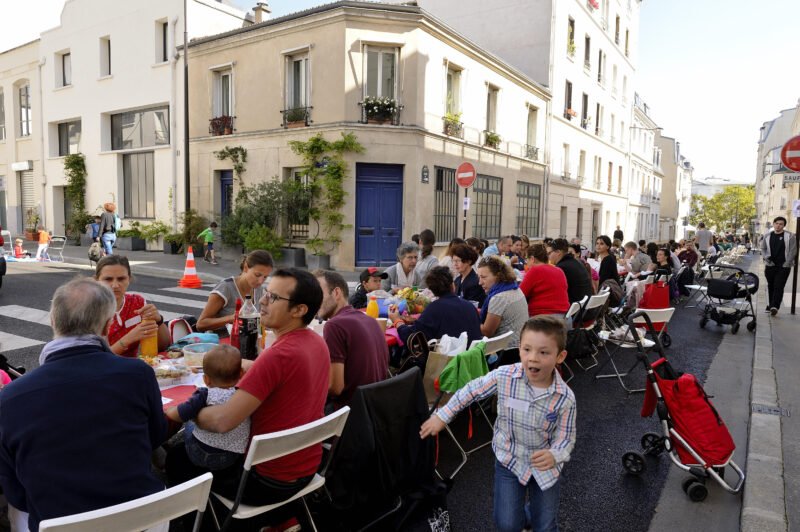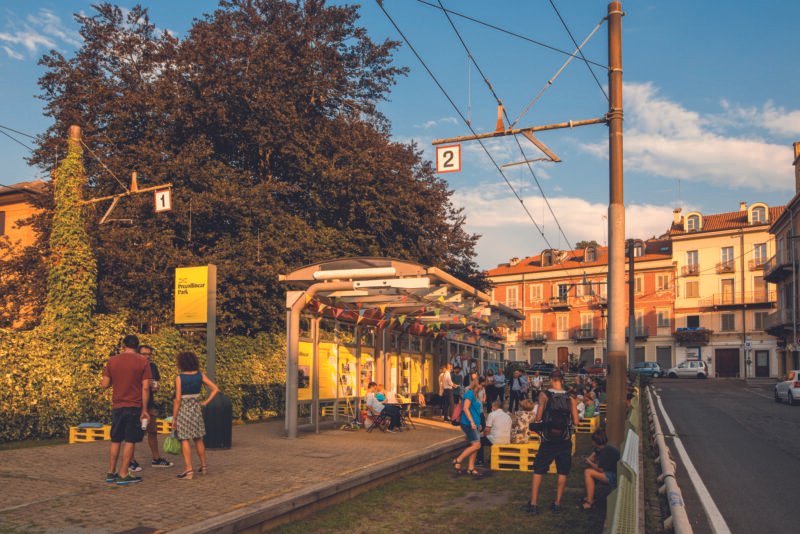From Military Site to Community Hub: The Story of Asiat Park

On an old military site on the outskirts of Vilvoorde, just north of the Belgian capital Brussels, lies Asiat Park, a public park created by and for the neighbourhood. From church communities to coffee breweries and skate spots, the park seems to offer something for everyone, promoting a vibrant and open green space that fosters community and creativity.
A Place for Exploration and Community Building
Many people will recognise the name due to the annual Horst Arts & Music festival that takes place in the park in May, a 3-day experience blending together art, electronic music and architecture. The festival also contributes to the popularity of the park and promotes the park as a place for new projects and innovation. Open to all, daily from 9am to 11pm, Asiat Park can only be reached on foot or by bicycle, as the park is completely car-free. Visitors enter the park to explore, play sports, enjoy the greenery or eat at Bar Betard, the canteen in the park’s garden hall. Of the 20,000 m2 that make up the area, 5,000 m2 is rented out as an event venue.


Several residents have found their place in the park, some temporarily, others for longer periods. Visitors can actively participate in activities in the park, such as the climbing gym Hall19, yoga sessions every Tuesday or weekly guitar and zumba classes run by the Spanish non-profit organisation CACD Peñarroya. Besides organising activities, there are also more permanent music studios and bicycle repairs and several non-profit organisations, including (W)arm-kracht, which fights against poverty and exclusion in Vilvoorde.
From church communities to coffee breweries and skate spots, the park seems to offer something for everyone



A Balance Between Old and New
The site has a long history under its name. From 1925, the army’s technical unit had its headquarters in what is now Asiat Park. When World War II broke out, both civilians and active military personnel working at the site left their barracks and the buildings were occupied by the Germans. After the war, the army was reorganised when AsiAT was created and their headquarters moved again to Vilvoorde. In 2008, the military quarters were closed and the empty site was used to house refugees for a few years before the city of Vilvoorde bought the property in 2019. In 2021, Vilvoorde city council approved the new programming of the Asiat site. To this end, a cooperation agreement was concluded with the organisations Onkruid and Den Hoorn, which jointly operate the site. They will be given management for a minimum of 5 and a maximum of 10 years with a view to the final layout and development of the area.

Asiat Park is an example of a successful redevelopment of an old heritage site into a cultural and community centre. While preserving the old and at the same time integrating modern and new green areas, the park has managed to keep the original atmosphere and feel of the place. This can be a useful framework for other urban redevelopment projects around the world, especially when it comes to temporary urban development.



